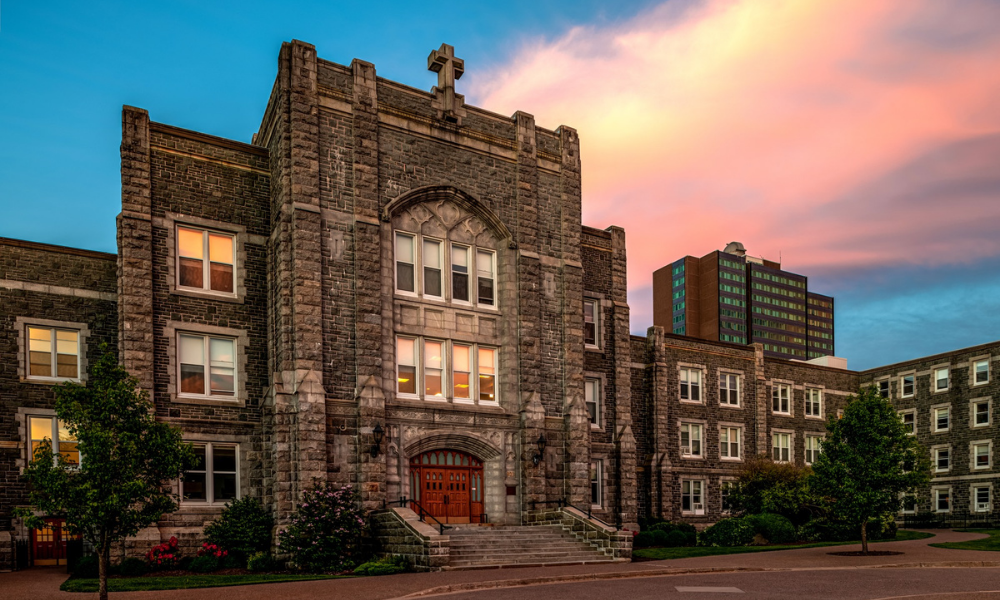The Study of Religion Program

Why study religion?
If you find world religions fascinating, the Religion program may be for you. Explore topics like religions and science, or religions in relation to contemporary culture, on subjects like ethics, love and death.
The Study of Religion program involves the comparative study of religions, traditional and modern ideas about faiths, rituals, beliefs, and what they show about gender, death, conflict, death, diversity, ethics, spirituality, love, and new religious movements.
The Saint Mary’s approach
At Saint Mary’s, a wide selection of courses is offered by a diverse faculty, applying a multidisciplinary perspective to religion and culture. The program allows students the flexibility to pair their degree with either Anthropology, Psychology, Sociology, Criminology, Geography, Political Science, History, English, or Classics. There are numerous opportunities for academic awards, including the Regis College Award.
Hands-on learning
Students have many opportunities for international academic exchange. Our Religion students have studied abroad in Uganda and joined the Peaceful Schools International program in Northern Ireland.
Sample courses offered:
- Religion in Contemporary Culture: This course explores the role of religion in contemporary culture, particularly North American culture. Portrayals of religious people as well as the employment of symbols and themes from various world religions will be identified within selected pieces of contemporary art, film, literature, music, Internet, and other media. We will also consider emerging religious trends and whether certain cultural practices are functioning in a religious role.
- Religion and Social Change: Explore the religious dimensions of important social movements throughout the world, including Engaged Buddhism and the Abolitionist, Anti-colonialism, Peace, Social Gospel, Temperance, and Civil Rights movements. Students examine the stories of such important activists as Louise McKinney, Mohandas K. Gandhi, Dorothy Day, Martin Luther King Jr., The Dalai Lama, and Thich Nhat Hanh. The emphasis is on social justice movements. The causes of the rise of reactionary, so-called “fundamentalist” movements are considered.
- Cults: New Religious Movements (sometimes called cults and sects), are a complex and diverse sub-topic. Students explore the ways in which these movements challenge conventional understandings of religious practice and belief, including how religions are defined and the intersection of religion and the modern state.
- Islam in North America: This course is a multifaceted look at issues of gender, law, and identity in North American Islam since September 11th, 2001. This event and a subsequent culture of securitization marks a fundamental shift in the way that Islam is represented, and we will explore how Muslims in North America construct their identities and practice their religion.
Plus introductory courses from programs such as History, English, Anthropology, Psychology, Classics Sociology, Criminology, Political Science and Geography
Future career opportunities:
- Teacher
- Human rights and diversity worker
- Cultural liaison
- Social worker
- Librarian
- Historian
- Mediator
- Counselor
- Clergy
What our students are saying
“I was able to learn about a society that is very much still post-conflict, from an era of political/religious conflict. We had the opportunity to work with students in Belfast and meet some amazing people. It’s not often that one gets to research in a foreign country for their undergrad.”
- Jenna-Leigh Wilson BA'11, who travelled to Northern Ireland with the Conflict Resolution Society